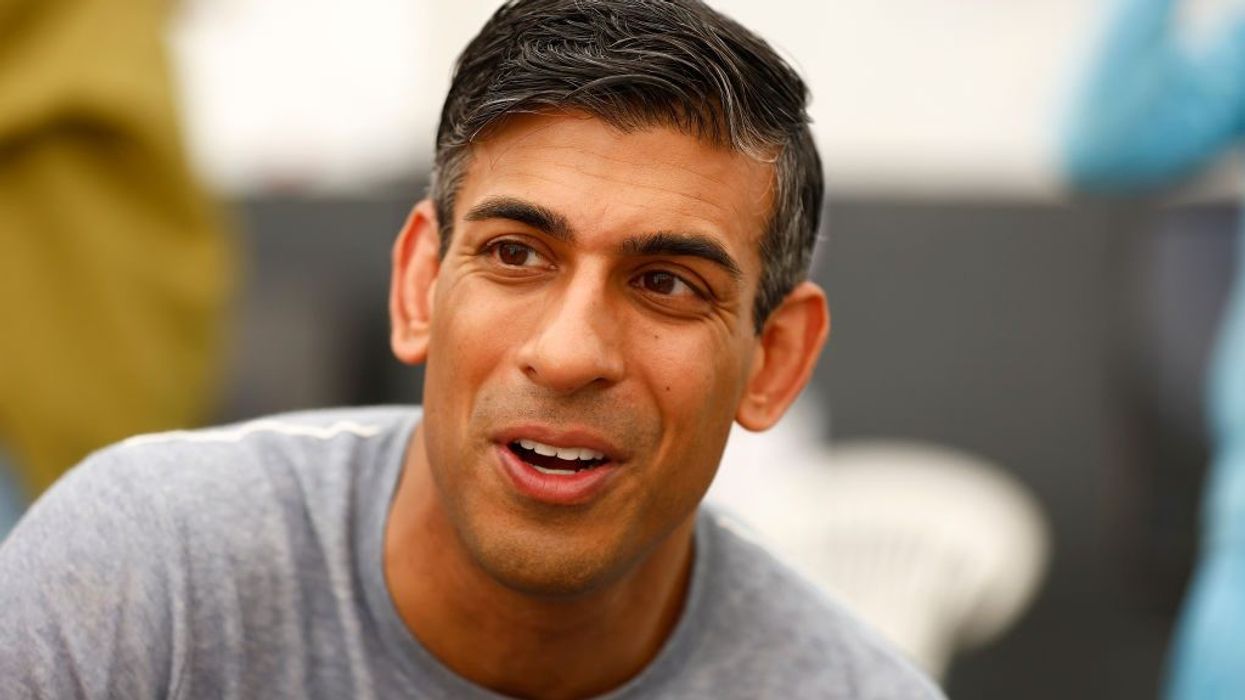PRIME MINISTER Rishi Sunak has backed plans to permit new fossil fuel exploration off Britain's coast, as he pledged to be "pragmatic and proportionate" about achieving net zero in an interview published Saturday (29).
The stance is set to intensify criticism from environmental campaigners, who accuse the British leader of backtracking on green policies to pander to voter unease at their potential cost amid the UK's worst cost-of-living crisis in a generation.
In an interview with the Sunday Telegraph, Sunak sought to distinguish between his ruling Tories and its main rival Labour over such issues, as he eyes a general election due next year.
Labour appears poised to regain power after more than a decade in opposition.
"I think it makes absolutely no sense, as the Labour Party is suggesting, to ban North Sea oil and gas," Sunak told the Tory-supporting newspaper, referring to waters off Britain's east coast.
"That is just going to weaken our energy security and strengthen the hands of dictators like (Russian) president (Vladimir) Putin.
"But it's also going to put at risk 200,000 jobs across something like 30 different sectors of the economy and also threaten £80 billion ($103bn) worth of tax revenue."
Sunak, who became leader last October, said his approach was "to support the UK's energy industry" and appeared to suggest that not exploiting new UK oil and gas reserves risked "the lights going out" in Britain.
"Everybody sensible recognises that we will need those fossil fuels as part of the transition to net zero," he argued.
Sunak and his ministers have riled climate campaigners in recent days by suggesting some UK environmental targets could be eased, while offering lukewarm support for the country's ambitious net zero agenda.
Swedish climate campaigner Greta Thunberg on Friday (28) called the UK government "out of touch from reality" after energy minister Grant Shapps said officials would look to "max out" North Sea reserves.
Meanwhile several mainstream pressure groups claiming to represent tens of millions of Britons wrote to Sunak promising to mobilise if net zero policies are watered down.
The moves follow Tories defying dismal national poll ratings to narrowly retain former prime minister Boris Johnson's vacated northwest London seat in a parliamentary by-election last week.
The narrow victory came amid voter unease at Labour mayor Sadiq Khan expanding a scheme taxing the use of the most polluting vehicles, and appears to have emboldened Tory net zero opponents.
In the interview Sunak, who has been criticised for his frequent use of helicopters and planes to travel around Britain, insisted he wants to "leave the environment and our climate in a better state".
"But I'm going to do that in a way that is pragmatic and proportionate, and not unnecessarily add costs or hassle to people's lives," he added, noting the current grim economic reality many face.
(AFP)





